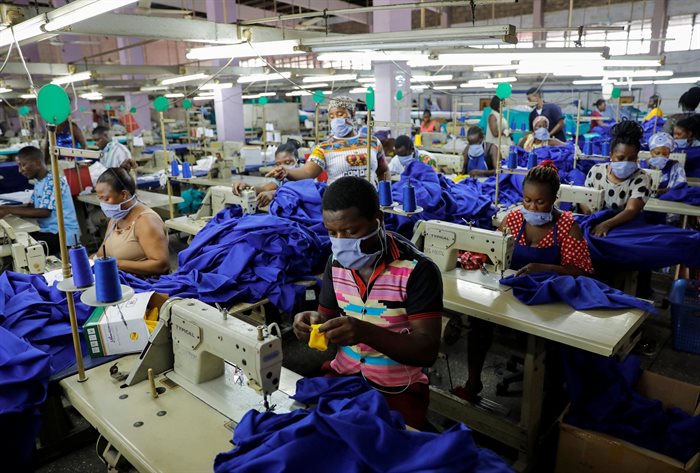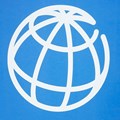Sub-Saharan Africa's economy is set to grow 3.6% this year, down from 4% in 2021, the World Bank said on Wednesday, 13 April, as it warned rising food and energy prices fuelled by Russia's war in Ukraine could spark civil unrest in the region.

Workers of a local factory begin the production of personal protective gear for local frontline health workers as commissioned by the government, during the partial lockdown in Accra to slow the spread of the coronavirus disease (Covid-19), in Accra, Ghana, 10 April 2020. Reuters/Francis Kokoroko
While it upgraded the forecast for this year by 0.1 percentage points and said last year's growth had beaten its initial forecasts, the bank said inflation in the region was set to quicken to 6.2% this year, up from 4.5% in 2021.
War in Ukraine would worsen the factors holding back Africa's recovery from the coronavirus pandemic despite small direct economic links, it said, due to higher commodity prices, tighter global monetary policy and a fall in foreign financial flows.
"(The war's) largest impact is on the increasing likelihood of civil strife as a result of food- and energy-fuelled inflation amid an environment of heightened political instability," the World Bank said in its latest Africa's Pulse report.
High risk of debt distress
It said the share of countries in sub-Saharan Africa classed as being at a high risk of debt distress had risen to 60.5% from 52.6% in October 2021.
"The existing debt relief and resolution mechanisms have been insufficient to bring down debt levels," the report, released ahead of International Monetary Fund Spring Meetings next week, said.
"Improvements are much needed to avoid a large wave of debt crisis among developing countries, particularly sub-Saharan African countries."
It added that Ghana, whose currency has fallen 17.9% against the dollar this year, was "leading the way" when it comes to concerns about countries' debt sustainability, although it forecast growth of 5.5% for the country in 2022.
Ghana's government has said it would not seek IMF help.
Food, commodity price spikes
Beyond the region, Sri Lanka, Egypt and Tunisia have requested assistance from the World's Bank's sister organisation since Russia invaded Ukraine, causing food and commodity price spikes.
The World Bank said its upgraded growth estimate for last year was driven by increases of 1.2% and 0.3% in 2021 figures for Nigeria and South Africa, although it warned of ongoing "sluggish" growth in Nigeria, South Africa and Angola.
South Africa would grow 2.1% this year, Angola 2.9% and Nigeria 3.8%, the World Bank forecast, while Ivory Coast would be the fastest-growing west African economy at 5.7%, and east Africa's biggest economy Kenya would expand 5%.






















